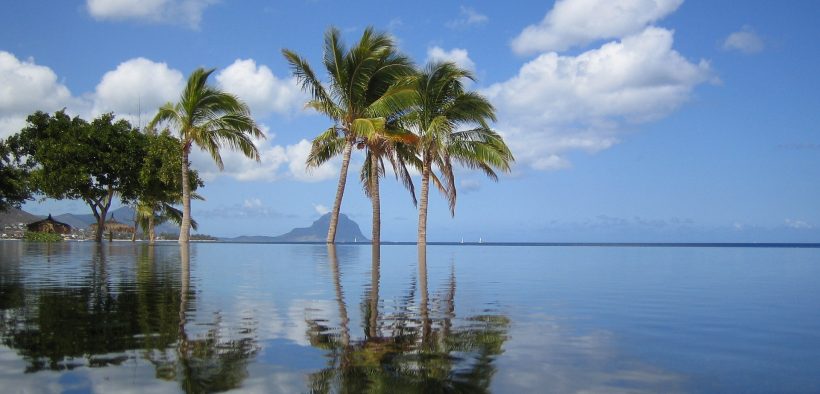‘Mauritius Leaks’ Expose New Corporate Tax Haven For World’s Biggest Companies

A new batch of leaked documents, dubbed the Mauritius Leaks, shows how multinational corporations dodge taxes by setting up shop in corporate tax-friendly remote locations.
The International Consortium of Investigative Journalists (ICIJ) published a bombshell report into the world of global corporate tax dodging on Tuesday, delivering the “Mauritius Leaks,” a window into how foreign corporations and investors use the tiny Indian Ocean island’s tax code to avoid paying taxes in the poor African nations they do business.
The investigation, based on a trove of 200,000 confidential documents from the Mauritius office of the Bermuda-based offshore law firm Conyers Dill & Pearman, shows how companies take advantage of tax rates as low as 3% by booking their profits in the island country, which calls itself a “gateway” between multinational corporations and the developing world.
Mauritius’ “gateway” status comes not only from its extremely low tax rates, but through its controversial tax treaties with 46 other mostly poor countries. These double-tax agreements, which were pushed by the OECD and other Western financial institutions in the 1990s, allow corporations to pay the much lower rate in Mauritius even when doing business in higher tax countries like Uganda.
“What Mauritius is providing is not a gateway but a getaway car for unscrupulous corporations dodging their tax obligations,” Alvin Mosioma, executive director of the nonprofit Tax Justice Network Africa, told ICIJ.
Live Aid Founder Implicated in Mauritius Leaks
Irish musician Bob Geldof, famous for his humanitarian efforts including Live Aid, is one of the most high-profile figures under scrutiny after the leaks. Geldof’s Africa-focused private equity firm 8 Miles is built on a socially-conscious brand that claims to support poor countries, but the leaked documents found Geldof’s fund set up its headquarters in Mauritius in large part for “tax reasons.”
“What the story shows is that being legal and in line with international corporate norms is no longer a protection against a PR nightmare,” wrote Financial Times in response to the leaks. “Especially when someone such as Anand Giridharadas, a vocal critic of ‘reputation laundering’ and the author of Winners Take All, amplifies the story to his half-million Twitter followers.”
Giridharadas’ book, Winners Take All, is particularly relevant to the situation because it targets the hypocrisy of philanthropic billionaires whose altruistic campaigns against societal injustices provide good publicity while obfuscating their own role in creating those injustices through tax evasion and lobbying.
Geldof’s investment fund prides itself on investing by the “8 Miles code,” which promises to “contribute to the economic development of the countries in which the Fund invests.” But because 8 Miles does business in some of the poorest countries in the world, its tax strategy deprives governments that rely on corporate taxation “far more than Western states” of essential resources needed to develop their societies.
In Uganda, where Geldof bought a chicken farm, more than 40% of the population lives on less than $2 a day. “One little wad of cash can be the difference between a poor country building big infrastructure or not,” a Ugandan tax official told ICIJ.
$500 Billion Cost of Tax Avoidance
“Tax avoidance, which costs governments and societies uncountable amounts of money that could go to education and healthcare, etc.,” tweeted Giridharadas in response to the leaks, “is especially egregious for companies that brand themselves on social good.”
Critics argue the vast network of international tax havens, earlier brought to attention by the Panama Papers and the Paradise Papers, exacerbates global inequality and siphons off resources from those who provide the infrastructure and labor that allow companies to profit in the first place.
“Sustainably is, first and foremost, a tax issue,” Linda Ambrosie, a researcher at the University of Calgary in Alberta, told ICIJ, “because whatever you try to do to make a destination more sustainable, like providing fresh water or good roads, needs taxes to pay for it.”
An estimated $500 billion is annually lost as multinationals avoid paying taxes to the countries they do business in, according to a report released in May by the Tax Justice Network.
“It is lower-income countries that lose the greatest share of their tax revenues to multinational companies’ tax avoidance,” Alex Cobham, the Tax Justice Network’s chief executive, told Al Jazeera. “Until the international tax rules are set at the United Nations, rather than the OECD, it’s hard to see how the global inequalities in taxing rights will be redressed.”
Cobham told Al Jazeera that a select few “governments line their own pockets at the expense of a crucial funding stream for sustainable human progress”, adding that the ability to “pay teachers’ wages, build hospitals and ensure a level playing field for local businesses has been deliberately and ruthlessly undermined”.








A guy who writes about big-time crime and big-time criminals — including those big-time criminals who engage in legalized big-time crime — never runs out of material, does he, Peter? Good on you, mate! Keep on writing!
Thank you Larry! I really appreciate your support!
“Nothing incites to money-crimes like great poverty or great wealth.” — Mark Twain